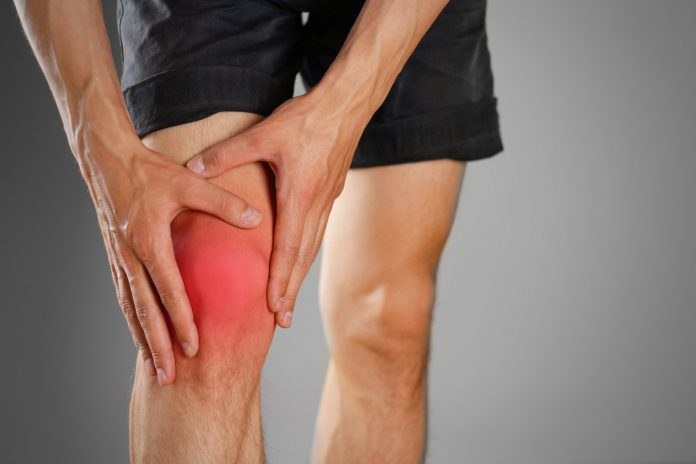Australians have the highest rates of ACL (anterior cruciate ligament) knee injuries worldwide, and young Australians are most at risk, with a 74% increase in knee surgery in people under 25 since 2000.

Half of those in this age group who have undergone knee reconstruction develop knee arthritis in their 30s, which means a less active lifestyle and potentially even a knee replacement in middle age.
Osteoarthritis is the most common form of arthritis, involving damage to a joint’s cartilage through wear and tear. Cartilage protects the ends of the adjacent bones and allows smooth joint motion, but when damage occurs, bone may move directly against bone, causing pain and restricted movement. This wear and tear can occur over many years, such as in older people, although a joint injury can result in the same issues.
Osteoarthritis also brings about changes in the affected bones, along with deterioration of the surrounding tissues attaching muscle to bone and keeping the joint in place. If cartilage in a joint is severely damaged, the joint lining may become inflamed, swollen and extremely painful.
La Trobe University researcher Dr Brooke Patterson, a former basketballer and AFLW player, is motivated by her own ACL injury to prevent the rise of this crippling condition and keep people playing sport for longer.
“Most people stop going to the physio about six to 12 months after knee surgery, but that’s too soon,” she said. “Our research showed about a third of people still have pain and restricted movement after a year.”
The knee is one of the most complex joints in the body, and the ACL is like a rope connecting the shin bone to the thigh bone. It’s just 3cm long, but with the help of muscles, it keeps the knee stable.
However, ACL injuries accelerate the development of osteoarthritis because the injury changes how the knee works, with the trauma affecting cartilage and other knee tissues.
With this in mind, researchers designed an exercise program focused on the lower leg, to be undertaken at home or in the gym three times a week, aimed at building knee strength using heavy leg weights, jumping and agility exercises. The program was supported by education on injury prevention and the risk of arthritis.
“Exercise therapy and education are used to treat older people with arthritis, but researchers had never asked whether similar interventions could work for young people,” Professor Brooke said.
“Almost every person who completed our new program said they had less pain and better quality of life.”
What else can patients do?
To maximise the chances of full recovery, many experts recommend certain vitamins, minerals and supplements thought to be beneficial to joint health and addressing the symptoms of arthritis.
These include:
- Curcumin. One of the main components of turmeric that may help block inflammation, curcumin may also promote heart health and prevent other conditions. Studies on rats suggest that curcumin supplements are an effective anti-arthritic treatment. In 2020, a trusted source study involving humans showed that Curcuma longa extract was more effective at reducing osteoarthritis pain in the knee than a placebo.
- Glucosamine. Glucosamine is thought to help with osteoarthritis pain and protect cartilage from deteriorating while helping joints to move better.
- Chondroitin sulphate. Chondroitin sulphate can help slow down osteoarthritis progression and may lower arthritis pain and inflammation. Experts believe this arthritis treatment works by helping to keep cartilage healthy, and a review of studies found that it significantly improved joint function and helped with pain and inflammation.
- Omega-3 fatty acids. There is strong evidence that omega-3 fatty acids provide anti-inflammatory effects. It is believed fish oil, which contains omega-3 fatty acids, can help treat inflammatory conditions including lupus and rheumatoid arthritis.
- Folic acid. Folic acid is the synthetic form of folate, a type of B vitamin associated with healing through cell division and the production of new red blood cells.
- Calcium. People with inflammatory arthritis who are treated with glucocorticoids — steroids that are often used to stop arthritis flares — may also need to take a calcium supplement. Glucocorticoids suppress bone formation and promote resorption, which can lead to glucocorticoid-induced osteoporosis.








